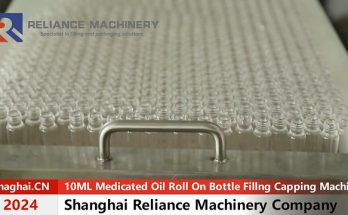Heat Resistant Silicone Clear
Heat resistant silicone clear is designed to be able to withstand high temperatures. This type of silicone sealant can be used for a variety of applications, such as sealing and bonding in industrial furnaces or sealing and repairing around heating systems like stoves and boilers.
Non-hydrated fillers have been shown to improve thermal stability of PDMS and halloysite nanotubes have been reported to significantly enhance flame retardant properties of a silicone composite [33]. These factors all contribute to making heat resistant silicone an incredibly useful product.
Flexible
Heat resistant silicone can be used in a number of different applications, but it must be selected carefully based on the temperature ranges it can withstand and how flexible you require it to be. This type of sealant is able to cope with high temperatures, unlike many other adhesives, and some can even withstand direct exposure to flames.
There are several options available depending on the exact requirements, from acid-cure and neutral cure silicones to acetoxy and neutral alkoxy sealants. You must choose a modulus for your application, with low-modulus options needing only a little force to stretch and being more elastic, while higher-modulus silicones will require more force to change shape and be more rigid. You should also select a product that will adhere to the surface you’re heat resistant silicone clear using it on, with some silicones etching or damaging metal or glass, while others are suitable for use with plastics and aluminium.
One option is Weicon Flex 310 M Crystal, which is a black RTV silicone sealant that can be used indoors and outdoors and is resistant to fresh and salt water. It withstands ongoing exposure to 90degC and short-term spikes of up to 130degC, and it is completely free of silicones and solvents. It is suitable for sealing and bonding a wide range of materials and can be painted or sanded once cured.
Resistant to Heat
Heat resistant silicone clear is often used in environments that need to withstand high temperatures. This can include ovens or other heating sources, as well as areas surrounding log stoves. This material can withstand temperatures above 200 degrees Fahrenheit and resist degradation over time.
This type of silicone can also be found in industrial applications, such as pump and compressor gaskets, humidifiers, ductwork and insulating wire and cable. It can bond a variety of materials and surfaces, including glass, tile, metals and wood. It can also provide a water-tight and air-tight seal.
Several different additives can be compounded into the silicone rubber, such as reinforcing fillers and non-reinforcing fillers, and curing agents and plasticizers. The addition of these additives can change the properties of the silicone rubber, resulting in a better overall product.
In one example, the heat resistance of a silicone rubber composition is improved by adding fumed titanium oxide and iron oxide to the base silicone rubber. The composition is then press vulcanized and oven cured. The resulting cured silicone rubber has a higher working temperature and lower temperature deformation.
Another way to increase the heat resistance of silicone rubber is by using a low molecular weight organopolysiloxane as a crosslinking agent. This can be done by placing a sample of the silicone rubber in a tube furnace and heating it for an hour at 300 degree Celsius. The generated gas is then led to a solvent desorption tube to collect the low molecular weight siloxane.
Resistant to Chemicals
One of the most important features that separates silicone from ordinary caulk is its resistance to a huge range of chemicals. It can withstand extreme temperatures and still remain intact, whereas normal sealants will degrade over time when exposed to chemicals.
It is able to do this due to the chemical structure of the material. All silicones are polymers made of siloxane, which consists of chains of silicon atoms linked with oxygen atoms. These chains create an elastomer that can stretch without breaking or becoming brittle. They can also resist a wide variety of chemicals and environments, including moisture, heat, and cold.
Some types of silicone are even more resistant than others. For example, high-temperature silicones can withstand temperatures up to +300 degrees Celsius and maintain their integrity. They’ll only begin to break down once they reach a temperature called autoignition. When this happens, the silicone will first begin to smoke and then crack before finally combusting. This process takes place within a very short period of time, and it’s rare for the resulting carbon dioxides or smoke to contaminate other surfaces.
Clear silicone can be used in a wide range of applications and is suitable for use on most materials, including glass, metals, plastics, woods, tiles, and ceramics. It can also be used in electrical and mechanical applications, and it is resistant to a wide range of weathering conditions.
Resistant to Moisture
One of the most remarkable things about silicone is its ability to withstand a wide range of temperatures. While many sealants melt when exposed to high temperatures, silicone remains solid and intact. This is due to its low thermal conductivity, meaning it transfers heat much more slowly than other materials.
This is what makes it so useful for high temperature sealing applications. It can withstand the heat from a car engine without melting and will also remain heat resistant silicone clear resilient in high temperatures around stoves, ductwork, boilers and furnace doors.
There is a variety of different types of silicone sealant, each designed for a specific purpose and application. For example, there is a clear food-safe silicone that is ideal for use in kitchens and bathrooms, while others are more resistant to chemicals or can withstand high temperatures.
We also stock a range of fire rated silicones that are designed to stop the spread of fire, smoke and toxic gases. These are a great choice for sealing joints in walls, floors and ceilings in homes and commercial premises. In addition, there is a general contractor’s silicone that is a durable and economical acetic cure product for general bonding, sealing and glazing. It is suitable for use in sanitary areas such as kitchens, showers and laundries and has excellent adhesion to most surfaces including metals, woods, glass, ceramics and plastics. It is also odourless and resists mildew, ageing and weathering making it suitable for outdoor applications.

